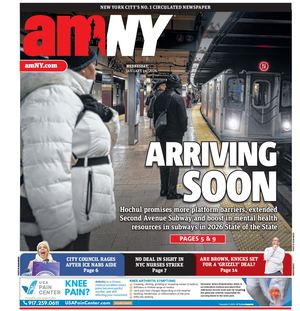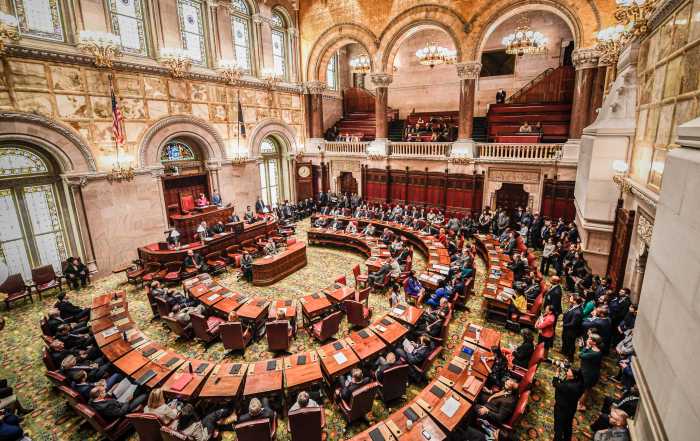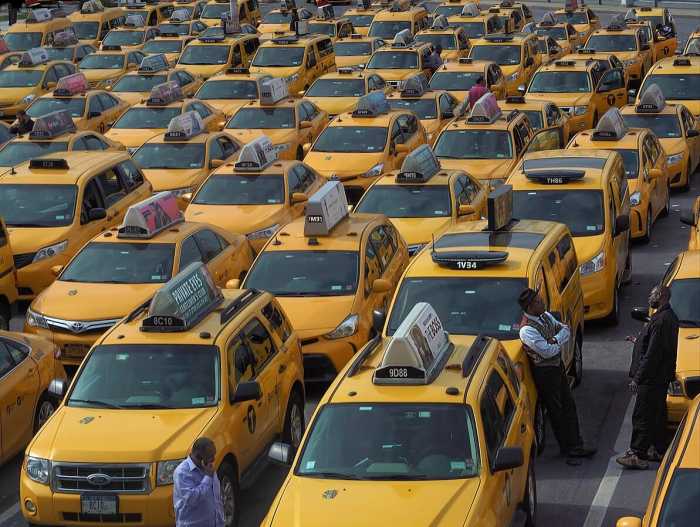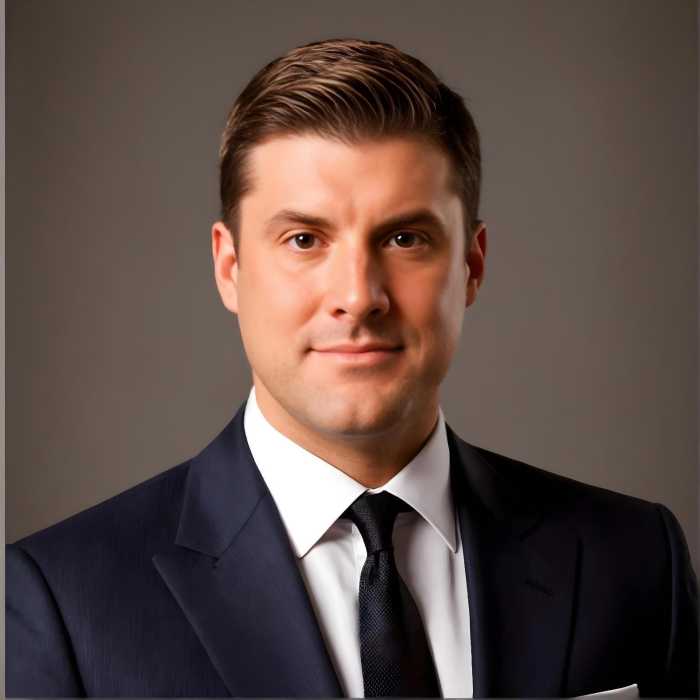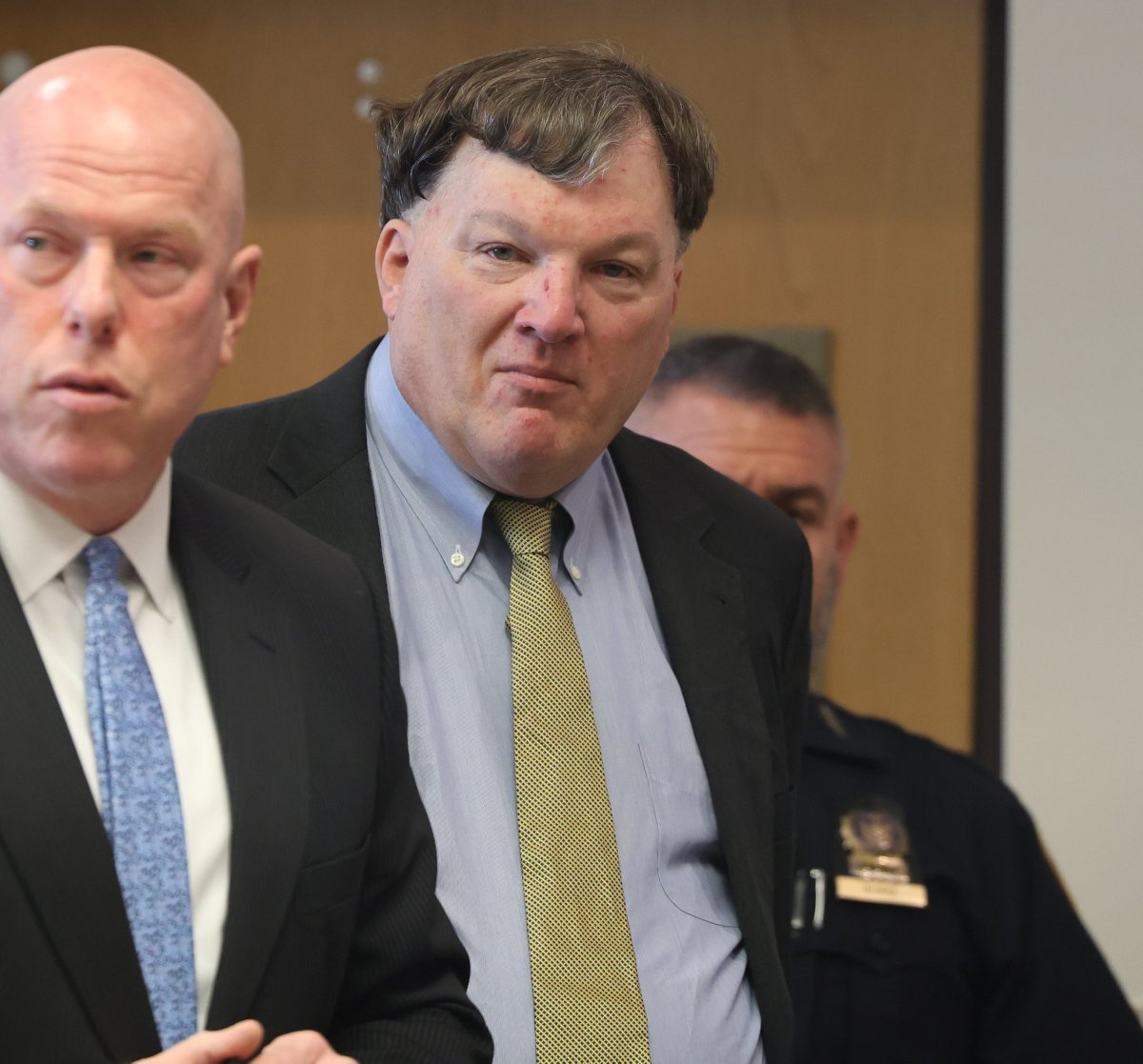Last week, Mayor Bill de Blasio took the stage at the CUNY Graduate Center with liberal economist Paul Krugman for a discussion on income inequality.
The talk was hopeful and mutually complementary. De Blasio “amen-ed” to at least three of Krugman’s statements, and he praised Occupy Wall Street. He decried the “concentration of wealth and power in this country,” and “the way the one percent dominates.”
Toward the end of the appearance, the mayor took audience questions.
“Mayor de Blasio, you have endorsed Hillary Clinton,” went the first question. “It seems obvious that Bernie is the superior choice.”
There were whoops and applause, the most animated the crowd had been all night.
So why wasn’t the progressive mayor supporting the avowed progressive?
The dilemma no one predicted
De Blasio’s endorsement saga was the story that wasn’t last summer.
While he waited to “hear more” about Clinton’s plans to combat income inequality, Sanders was gaining support and burnishing a movement. Then, just as Sanders was beginning to show that he could be a real threat in the presidential election, let alone win delegates, de Blasio threw his support to his former boss. His hoped-for progressive forum in Iowa never materialized, and he was received less than ecstatically back into the Clinton fold.
The rationale de Blasio gives for supporting Clinton has become the CliffsNotes pitch for this election: He admires Bernie’s addition to the conversation, but Clinton, de Blasio says, is the one who can achieve goals. Sanders’ tight finish in Nevada will only increase the urgency of that claim.
“We are actually one big happy family in my view,” de Blasio said on Thursday, referring to the Democratic voting base — ironic phrasing given that First Lady Chirlane McCray recently let slip that the de Blasio children aren’t immune to the Bern.
When does progressive become pragmatic?
It’s fun watching de Blasio tie himself into knots spouting progressive language — Buffett rule, $15 minimum wage — and then trying to say that Clinton is unequivocally for them. Clinton has drifted left in recent months, but this is still Sanders’ domain.
But there’s a way in which de Blasio, who campaigned as the arch progressive, has embraced his inner Clinton while actually governing.
His universal pre-K initiative, the first priority of his administration, is analogous to Sanders’ free college proposal.
It was big and bold and it actually happened — it’s too early to say exactly how useful it’s been but the numbers are some level of success alone — and he planned for the funding to be taken from taxes on the wealthy. The plan ran into problems, when Albany refused him that pleasure. Still, he got the program he wanted through other funding.
Since then, we’ve seen various compromise initiatives — affordable housing plans and streetcar construction that work with gentrification, not against it; a retirement savings plan that puts the onus on the employee, not the employer — as well as compromises that went horribly wrong, such as the failed horse-carriage deal.
Certainly he has elevated progressive causes, from the minimum wage to paid parental leave. But his administration sometimes seems better at the big pronouncements than the little details, as with its affordable housing plan that is now being rejected in city neighborhoods that feel broadsided by the initiative.
Still, it can’t hurt to talk progressive.
De Blasio’s compromise minimum wage plan for city workers only helps a small subset of the city, but it has fueled the competitive ire of another pragmatist, Gov. Andrew Cuomo, who is barnstorming the state to bring the Fight for 15 to its conclusion. Now Cuomo is working the levers for that progressive cause that de Blasio sweepingly says would begin “redefining our notions of fairness.”
This is amExpress, the conversation starter for New Yorkers. Did someone forward you this email? Subscribe at amny.com/amexpress.
